We Dive Into Your Projects
What were the projects or initiatives you worked on? We probe to understand the scope, the stakes, and the significance.
"Tell me about the biggest project you led last year..."20+ Administrative Resume Examples
In Administrative, you're competing with 620 applicants per search
You're Not Rejected.
— You're Overlooked —
We fix your administrative resume with one conversation
The strongest administrative resumes lead with operational impact — executives supported, budgets managed, systems implemented, and processes improved — not duties. Hiring managers screen for proof of cross-functional coordination, cost management, and the ability to scale from supporting one VP to running an entire office. Every resume sample on this page was built through a 1-on-1 interview that extracted the specific operational outcomes that differentiate candidates in a field averaging 620 competitors per job search.
Each administrative resume sample below was written through our 1-on-1 interview process. Click any administrative resume example to see the full sample and learn how we transformed their experience into proof.
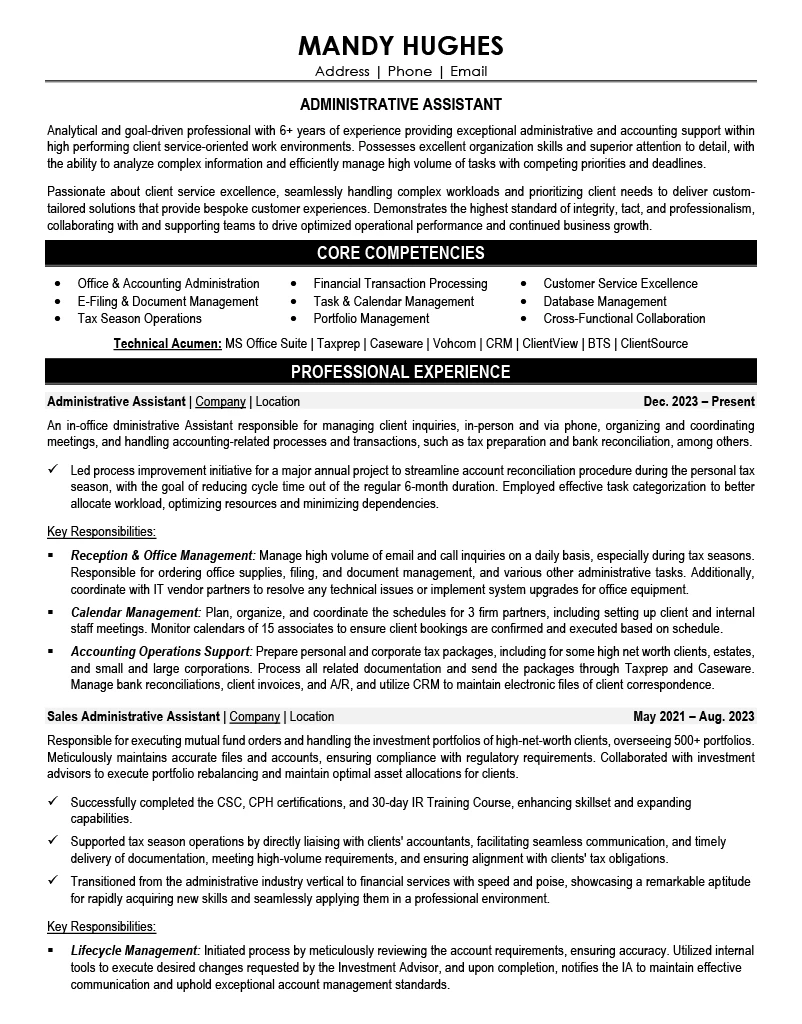
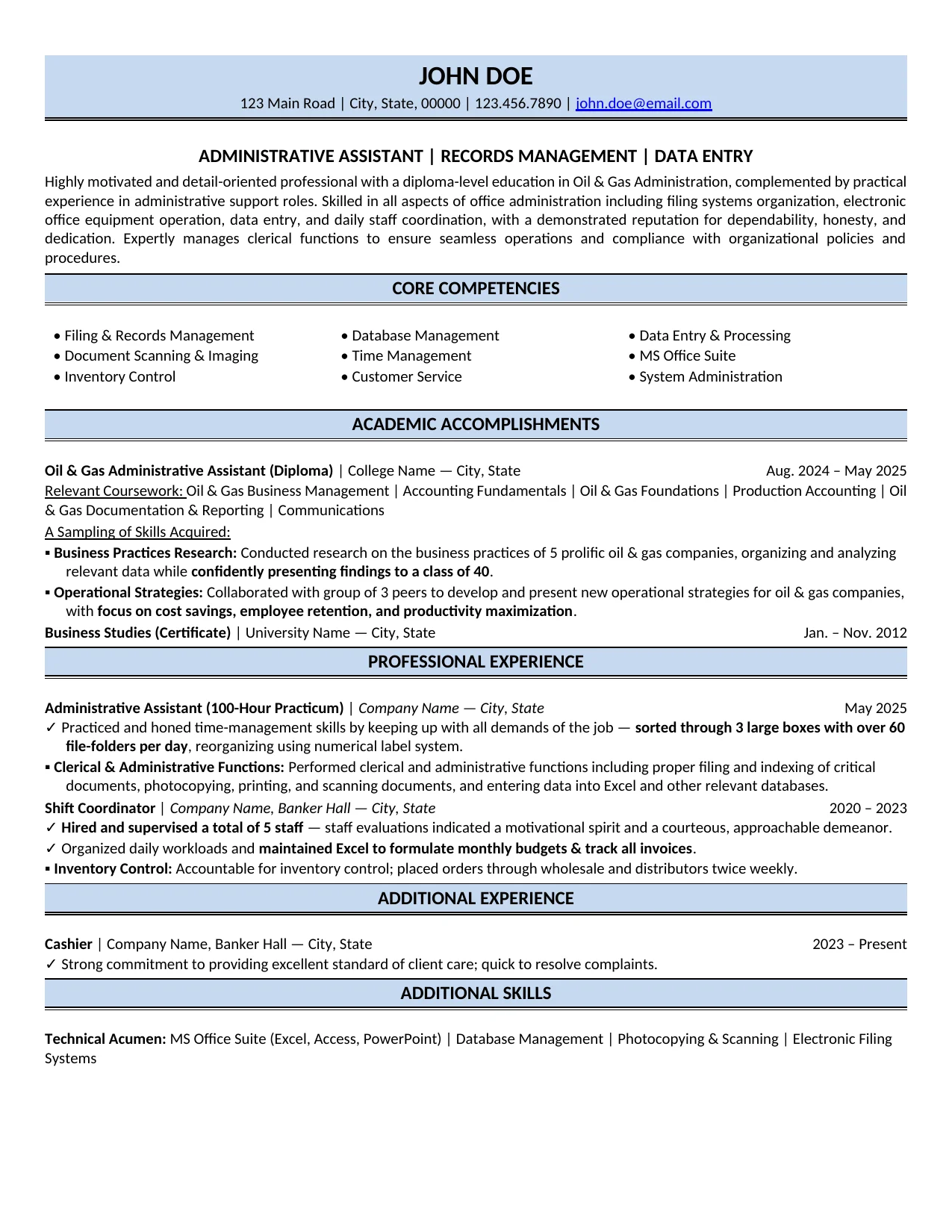
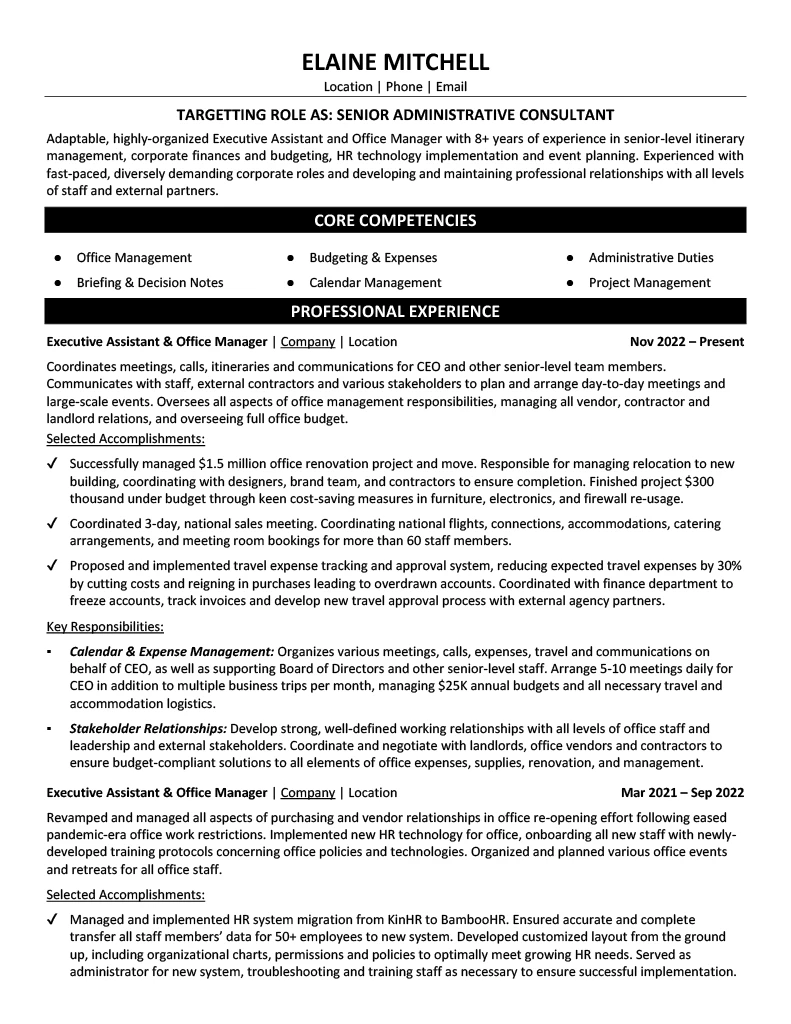
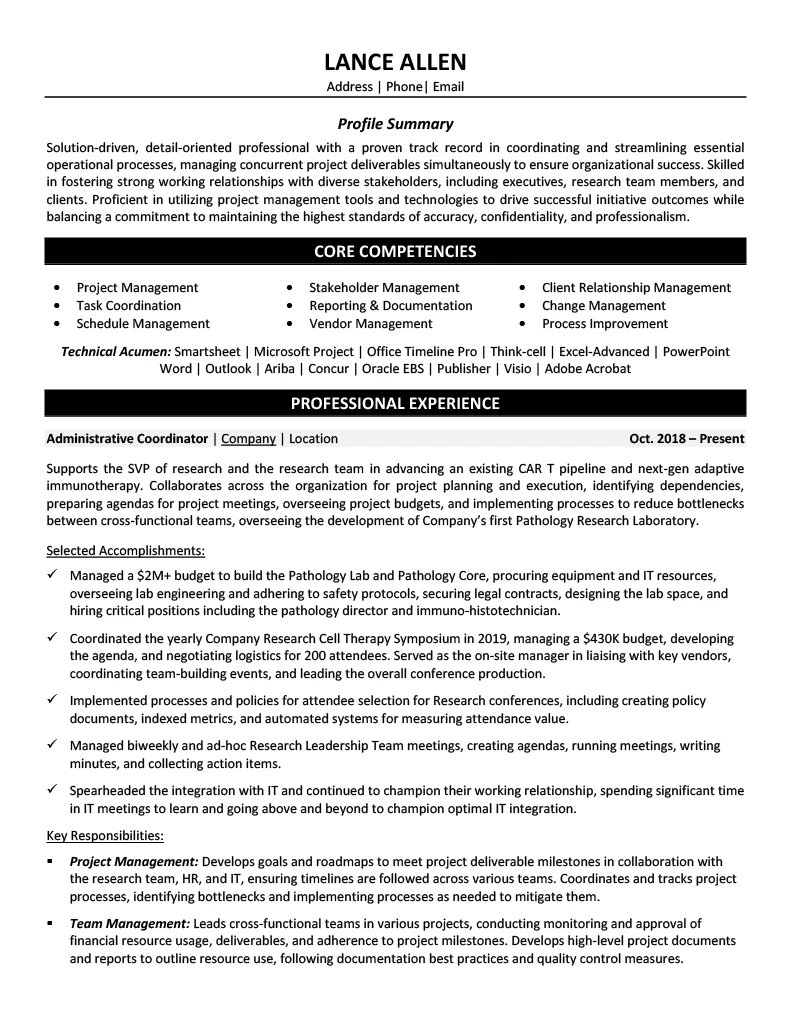
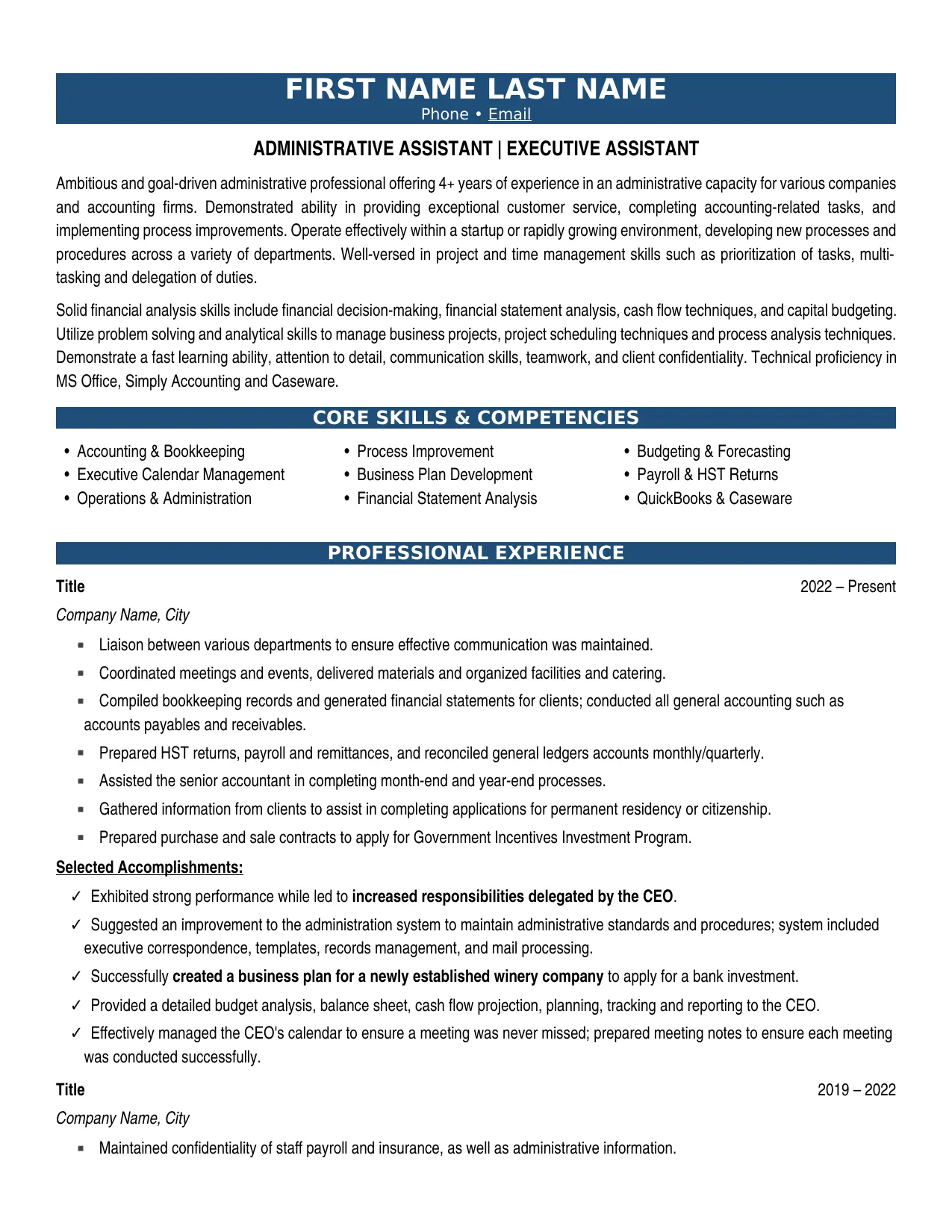
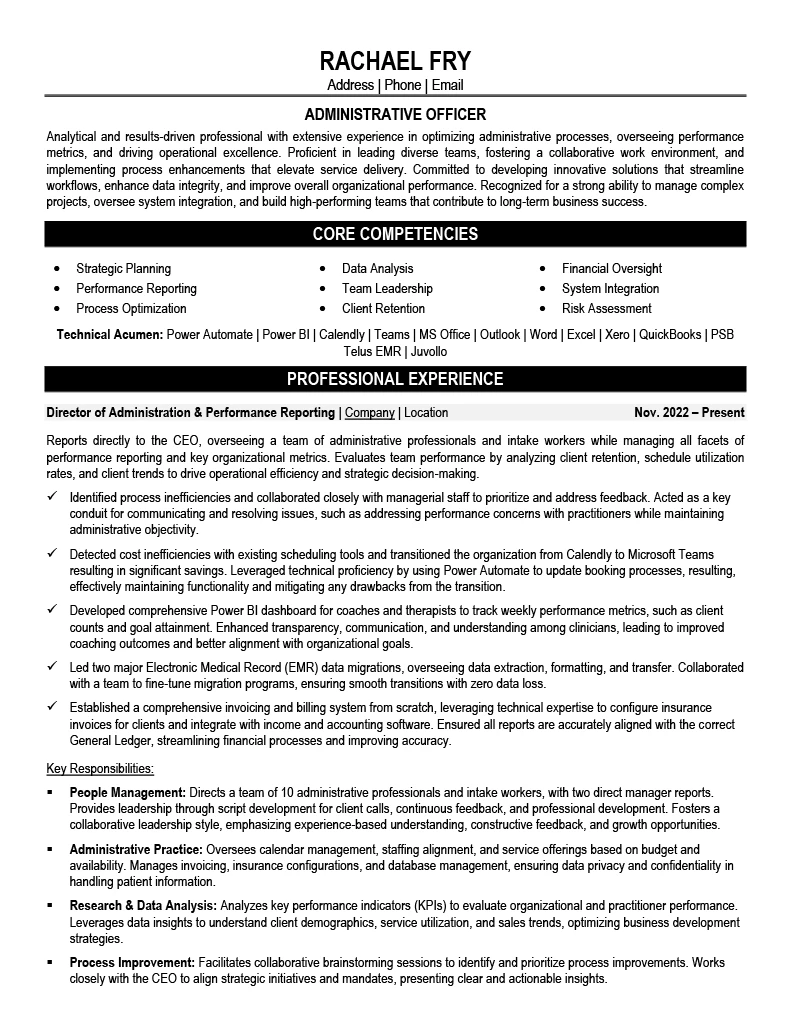
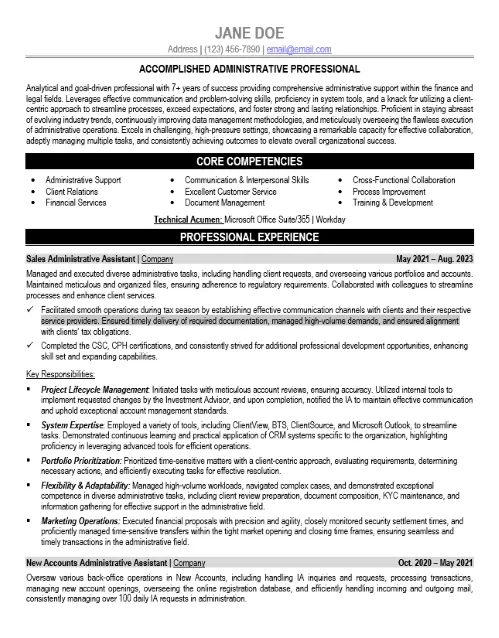
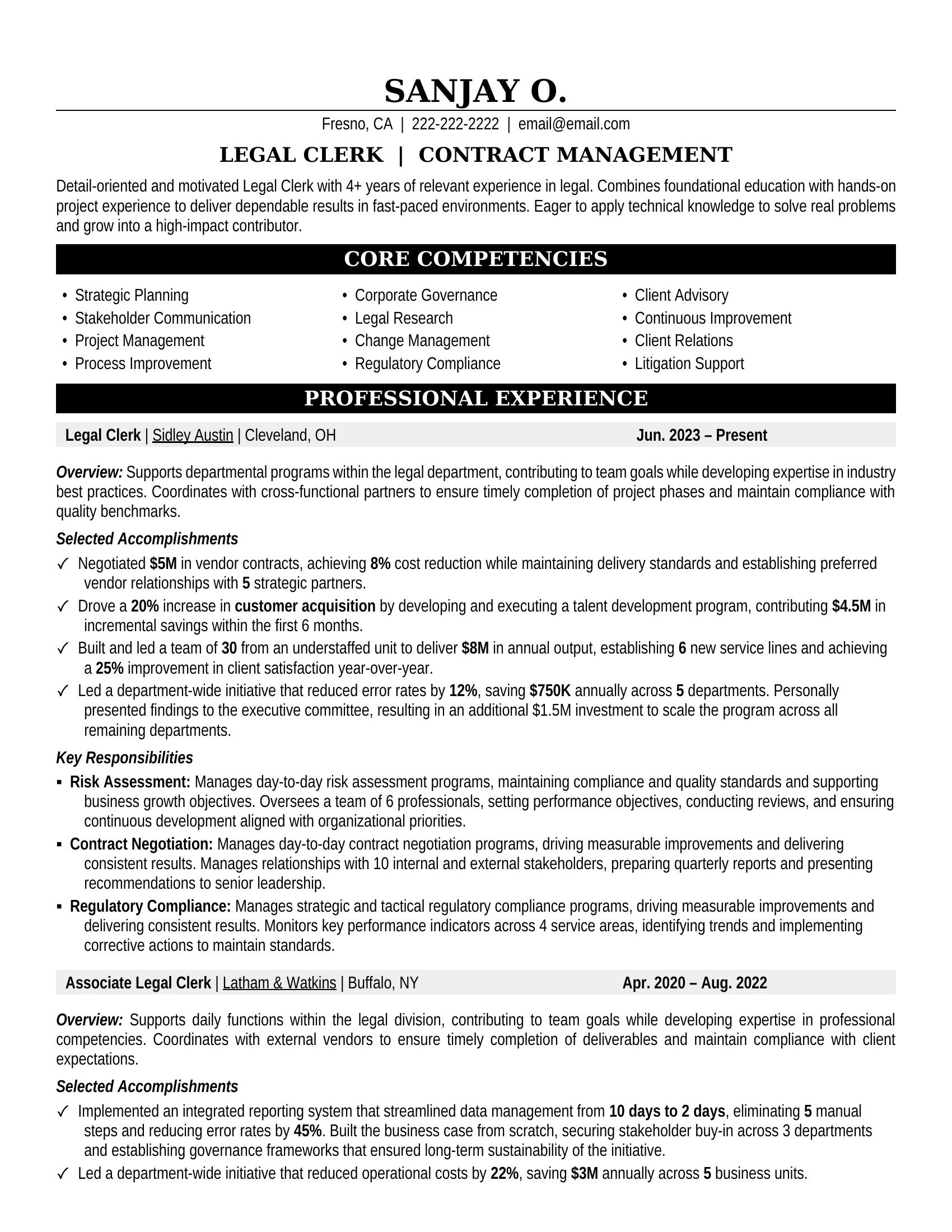
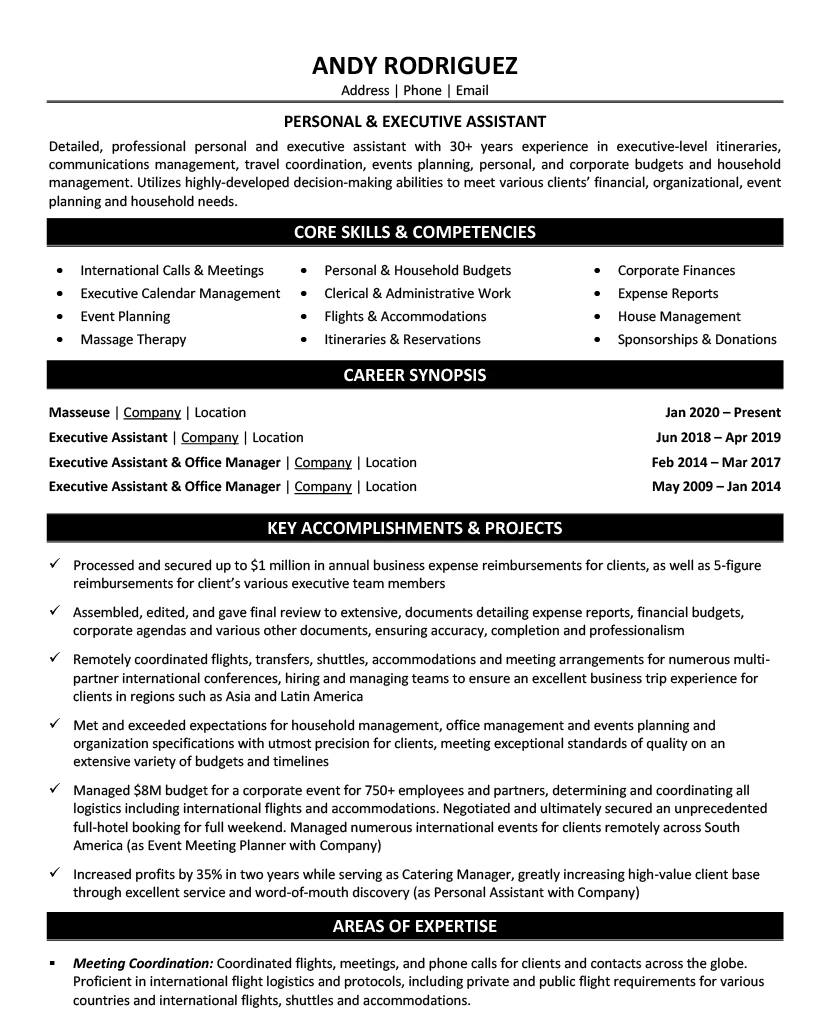
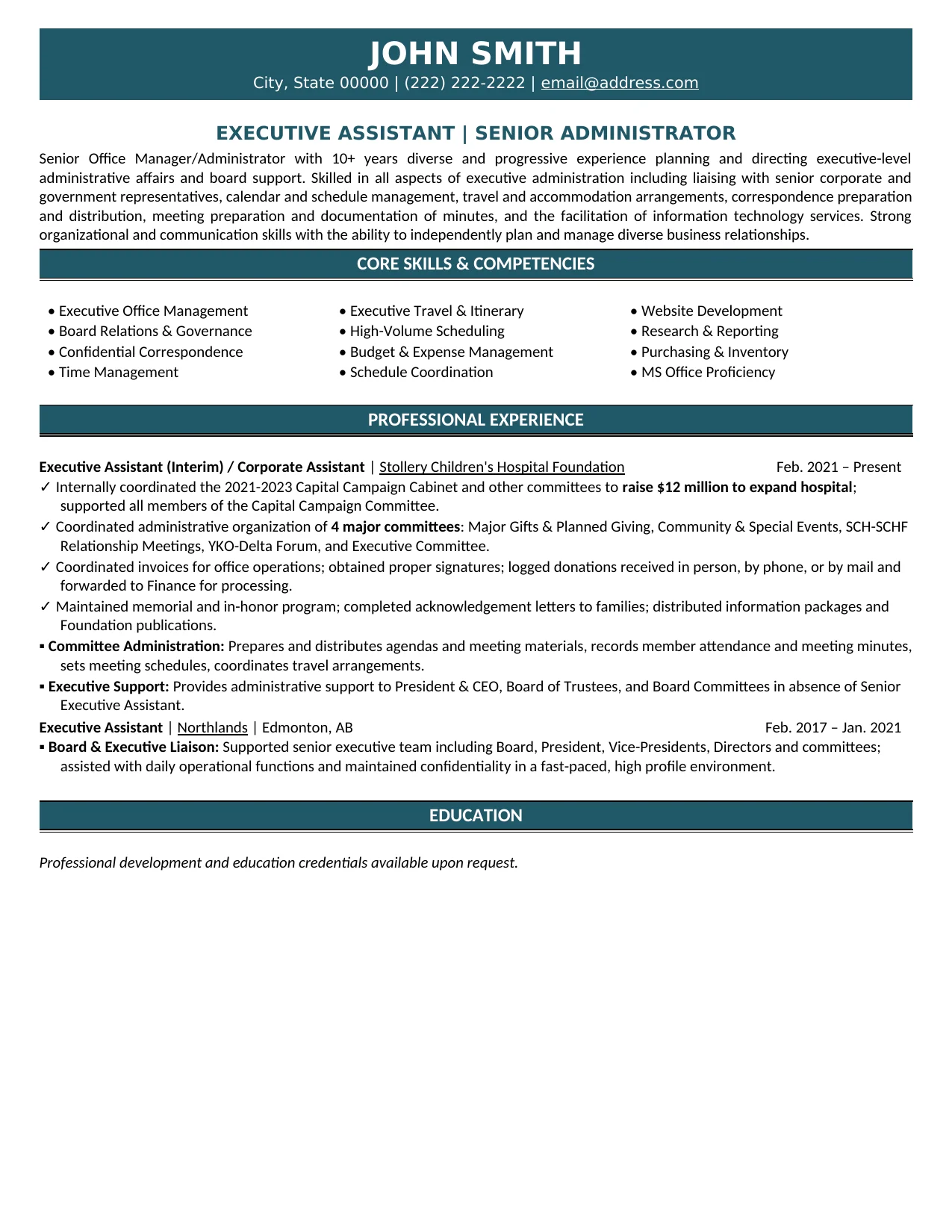
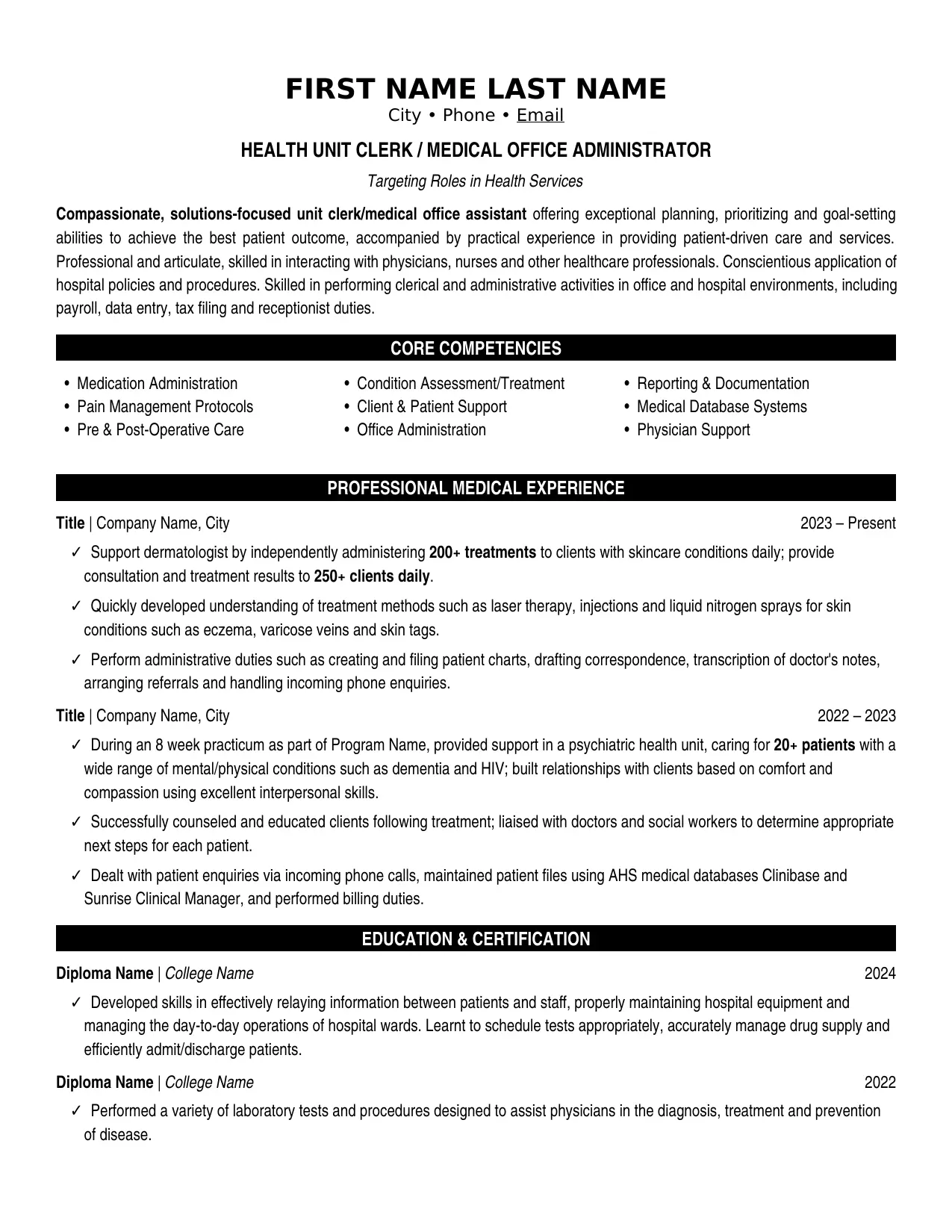
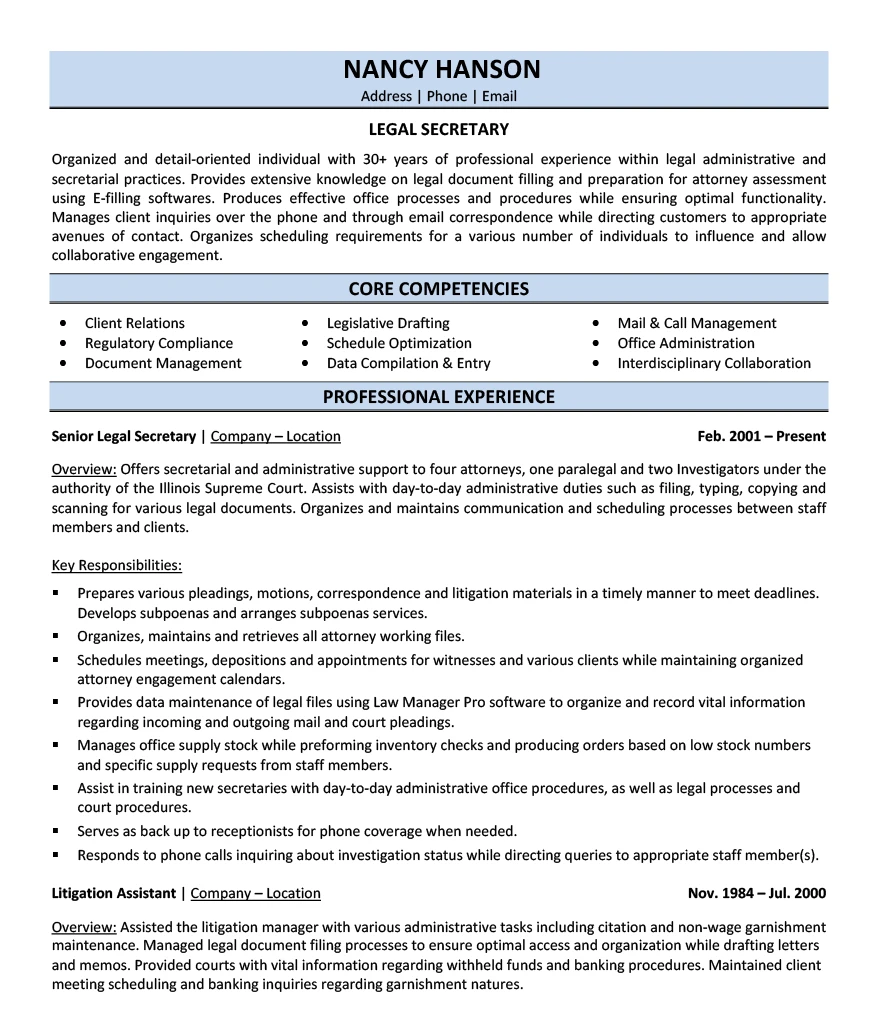
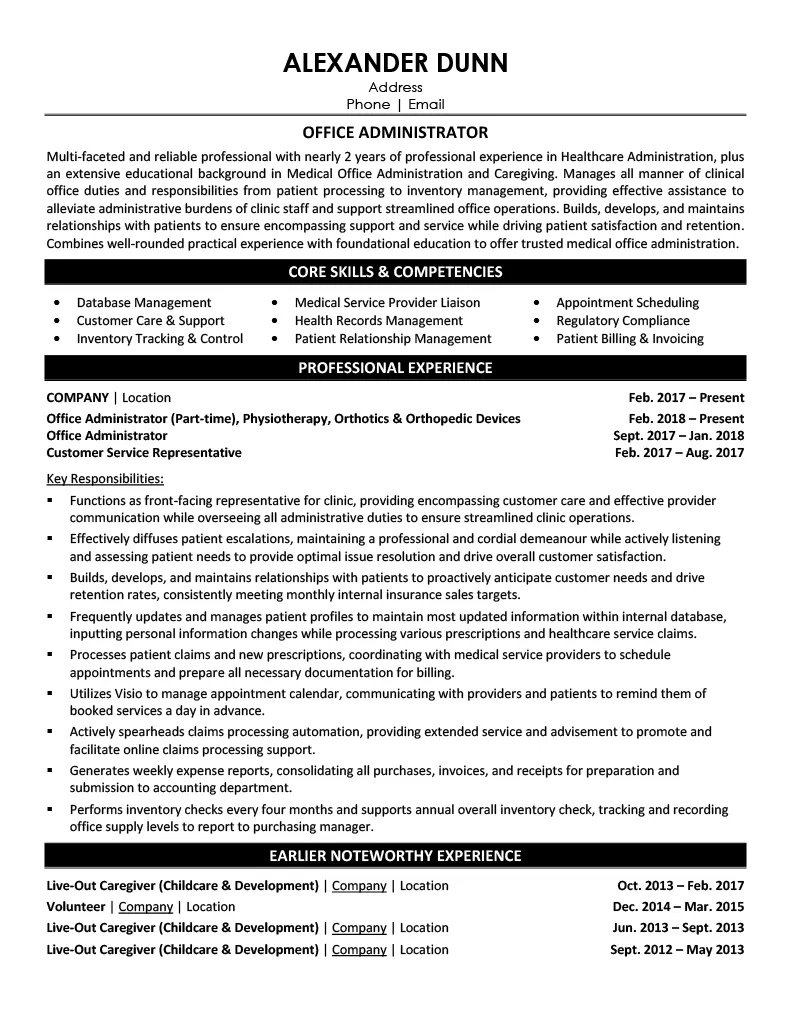
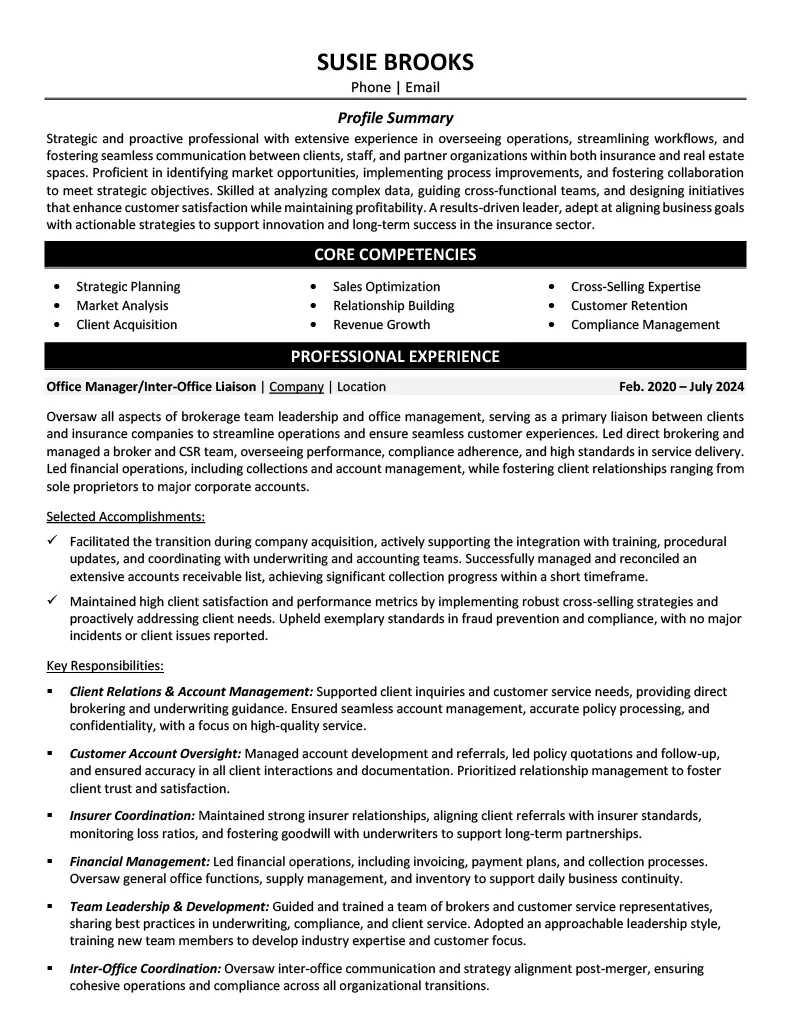
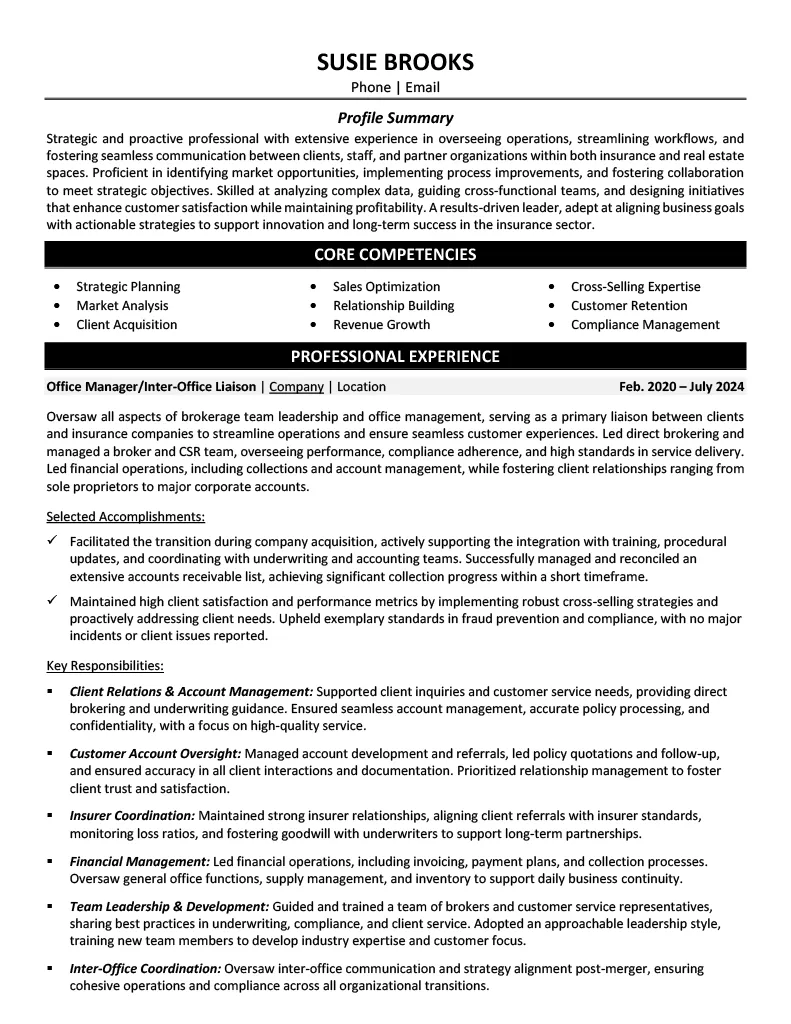
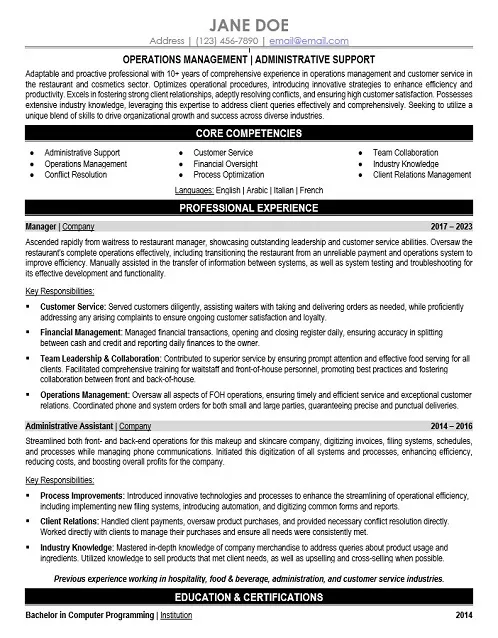

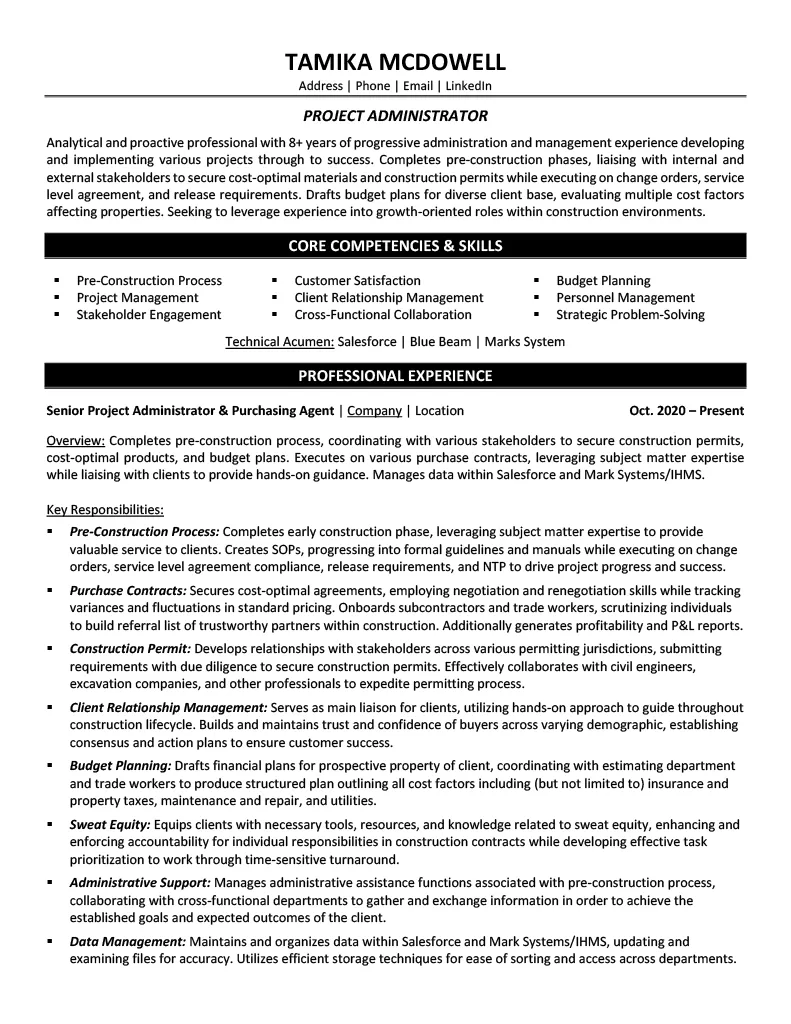
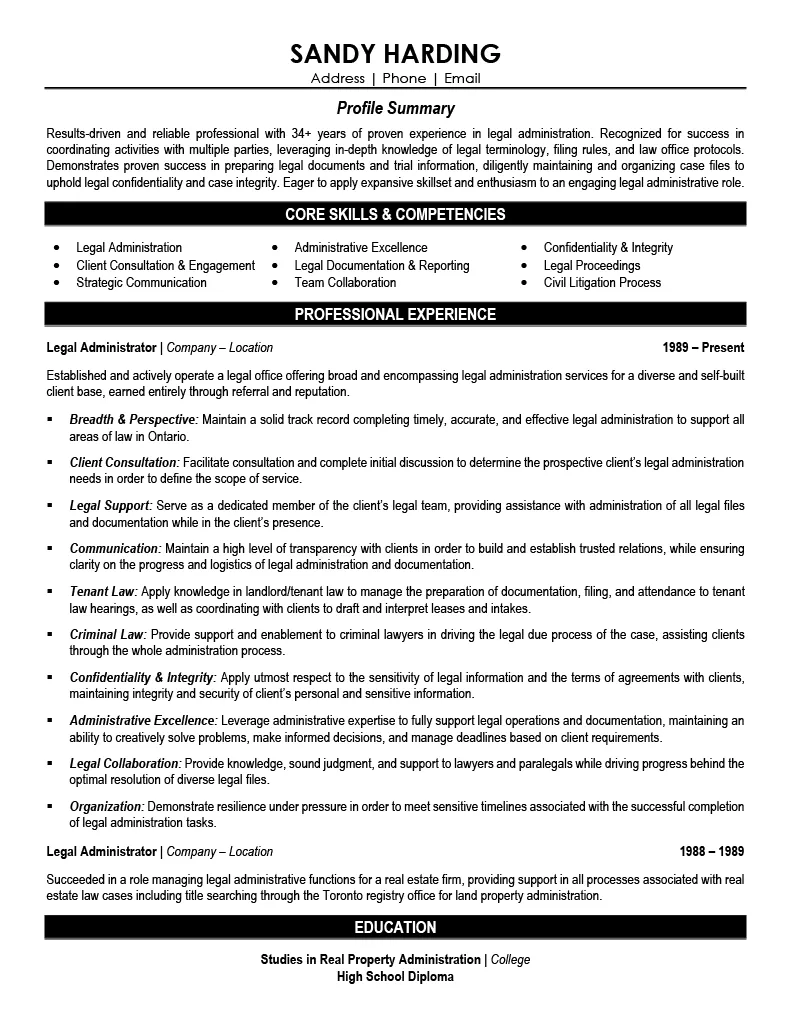
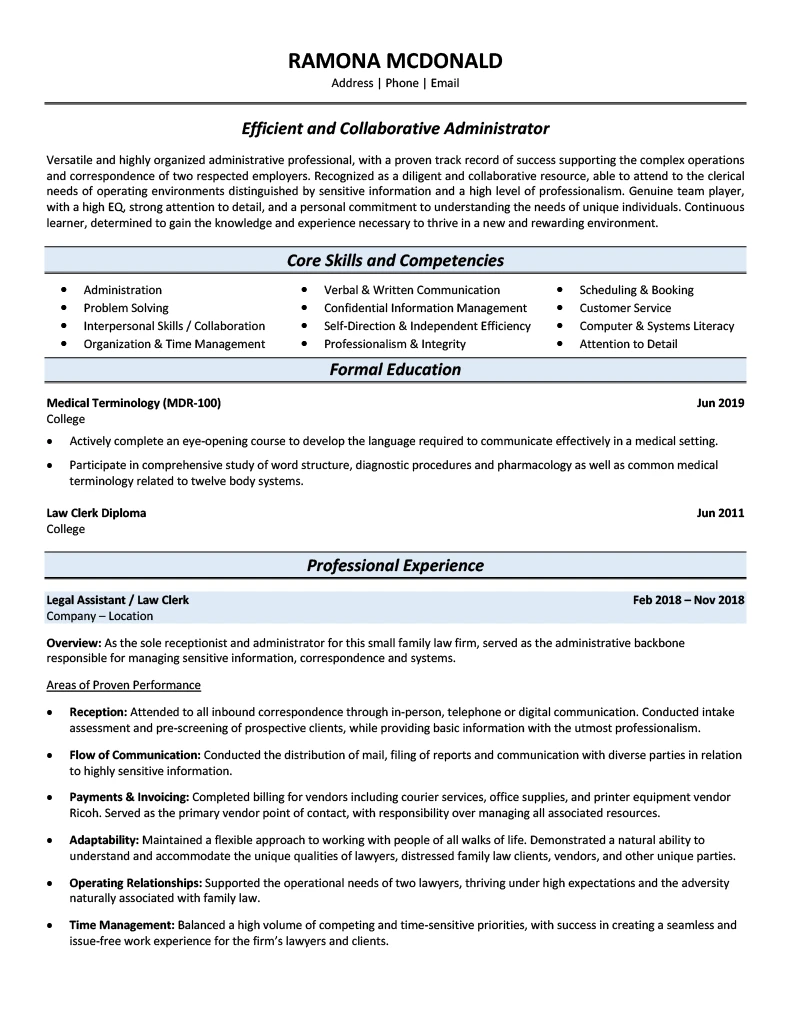
When a hiring manager reads your administrative resume, they should think:
"This person has solved the exact problems we're facing."
What were the projects or initiatives you worked on? We probe to understand the scope, the stakes, and the significance.
"Tell me about the biggest project you led last year..."What were the goals of the project? The company's objectives? We connect your work to business outcomes.
"What was the company trying to achieve with this?"What systems, processes, and strategies did you implement? This is where your expertise becomes visible.
"Walk me through how you actually made this happen..."What challenges did you face? What systems did you implement to overcome obstacles?
"What was the biggest challenge, and how did you solve it?"See how our interview process uncovered achievements and turned them into interview-winning proof.
Get Your Administrative Resume Written
Administrative jobs average 31 applicants per position. You're competing against 620 candidates. Our administrative resume examples show how to stand out.
Data based on LinkedIn job postings. Updated Dec 2, 2025.
Here's the math most job seekers don't do:
Your administrative resume must stand out against 620 professionals.
What makes you different is the story behind the projects.
Get Your Administrative Resume WrittenEvery administrative resume example on this page was written through our 1-on-1 interview process. We extract achievements you'd never think to include.
We identify keywords and achievements that get administrative resumes noticed.
Targeted questions about your administrative projects and results.
Transform responsibilities into quantified achievements.
ATS-optimized resume in 3 business days + 14-day revisions.
80% of administrative positions are never advertised. Get your resume directly into the hands of recruiters filling confidential searches.
When you purchase our Resume Distribution service, your resume goes to 450+ recruiters specializing in administrative — included in Advanced & Ultimate packages.
| Agency | Location |
|---|---|
|
HA
Hays Specialist Recruitment
|
Nationwide |
|
RA
Randstad Staffing Agency
|
Nationwide |
|
KE
Kelly Services Workforce Solutions
|
Nationwide |
|
MA
ManpowerGroup Talent Solutions
|
Nationwide |
|
AD
Adecco HR Services
|
Nationwide |
Administrative roles average 31 applicants per position across 681 active job postings — but competition varies by role. Executive Assistant positions draw 31 applicants per opening, while Administrative Assistant and Receptionist roles each see about 29. That sounds manageable until you do the math: apply to 20 positions in a typical 30-day search and you're one of roughly 620 candidates those hiring managers are evaluating. New York City is the toughest market at 44 applicants per role, while Los Angeles sits at 28. At those volumes, "provided administrative support" gets filtered out — "coordinated schedules for 4 C-suite executives across 3 time zones, reducing conflicts by 85%" gets called.
Because a questionnaire can't distinguish between an EA who manages one VP's calendar and one who supports 75+ store managers across multiple regions while cutting printing costs by 50% and uniform costs by 20%. Both would write "provided executive support." Our 1-on-1 interview is a live conversation with a writer who knows to ask: How many executives are you supporting — and at what level? What's the budget you manage for travel or events? What systems did you implement or improve? What was the scope of that office relocation? One of our Administrative Coordinator clients managed a $2M+ pathology lab build and coordinated a $430K research symposium for 200 attendees — details a questionnaire would have captured as "helped set up a new lab."
The resumes on this page prove it: the difference is operational impact, not job duties. Every administrative professional "manages calendars" and "coordinates meetings." What gets interviews is quantified proof of what that management actually accomplished. Our Executive Assistant sample shows 16+ years with 50% printing cost reduction and support for 75+ managers. Our Office Manager sample shows team leadership through a company acquisition transition with zero fraud incidents. Our Legal Secretary sample shows 30+ years supporting 4 attorneys, a paralegal, and 2 investigators under Illinois Supreme Court authority. The pattern across every sample: specific numbers, specific scope, specific outcomes — not a list of tasks anyone in the role could claim.
It matters completely — and it's why administrative is one of the most misunderstood resume categories. A Legal Secretary supporting 4 attorneys with court filings and case management under state bar authority is a fundamentally different role than a Healthcare Unit Clerk managing patient intake and medical office operations, which is completely different from an Operations Administrator running process optimization and financial oversight. A Project Administrator managing a $2M lab build has more in common with a project coordinator than a receptionist. During your interview, our writers identify the specific context of your administrative work and extract the achievements that matter in your target sector — not generic "organizational skills" that could apply to anyone.
Our administrative resume packages are based on career level and interview depth — from a 30-minute early career session to a 90-minute executive interview. When evaluating price, consider what the number actually buys. A company charging $99: after the company takes its margin, the writer earns $40-60 — enough for about 45 minutes of total work including writing. That's a questionnaire reformat that produces "managed executive calendars and travel arrangements." Our Professional-level interview alone is 60 minutes, followed by job posting analysis, drafting, and revisions — producing "coordinated $430K research symposium for 200 attendees while managing $2M+ pathology lab build timeline." View current packages and pricing.
We offer a 90-Day Interview Guarantee. If you don't land interviews within 90 days of receiving your final administrative resume, we rewrite it free of charge. We can make this guarantee because our interview-based process produces resumes built on quantified operational outcomes — the budgets managed, systems implemented, and executive relationships that administrative hiring managers respond to. Browse the resume samples on this page to see the quality of work we deliver.